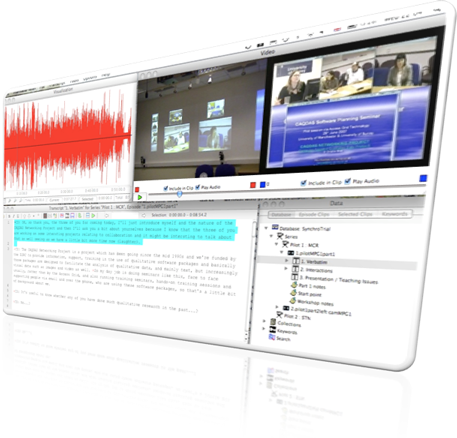Get Ph.D. Level Expertise
Matthew Sharritt, Ph.D., President and Co-founder of Situated Research, specializes in user-experience (UX) research and usability testing within software and video games. Dr. Sharritt’s doctoral research focused on collaborative learning during playtesting and exploration, by taking an open-ended look at what is accomplished during gameplay. This gave him deep insight into how commercial video games tick, and how to construct games that flow with engaging gameplay and collaborative interaction.

Dr. Sharritt’s interdisciplinary expertise in Communication & Information Sciences (learn more at sharritt.com) incorporates communication, sociology, computer science, information science, human-computer interaction, theories of learning, and both behavioral and cognitive psychology into Situated Research’s video game analysis process. The Situated Research team has provided independent expertise to the game industry across a variety of research projects.

Transana Collaborative Research Platform
Our goal is to help design better gameplay by completing a recursive analysis of videotaped gamer behavior to inform design with actual gameplay patterns. This uncovers why players behave the way they do in order to design the best possible game.
 Transana is Situated Research’s qualitative research tool, due to its unique advantage as a cloud-based platform. Collaborative game analysis by multiple remote researchers is now possible, and can include members of your design team.
Transana is Situated Research’s qualitative research tool, due to its unique advantage as a cloud-based platform. Collaborative game analysis by multiple remote researchers is now possible, and can include members of your design team.
Transcripts to Inform Design
We build multiple transcripts in Jeffersonian notation: a system that records non-verbal behavior, communication with others, gestures and actions within the interface; as well as variances in speech such as speed, pauses, emphasis, and tone. This yields patterns of behavior to gauge usability in an ‘in-situ’ environment.
 Our usability experts study complex interactions to create a complete picture of your game’s user experience. We have worked on highly interactive video games, software, and product user interfaces.
Our usability experts study complex interactions to create a complete picture of your game’s user experience. We have worked on highly interactive video games, software, and product user interfaces.
More than UX Research
Our analysis examines the user interface, user communication, and how gamers learn to play collaboratively to raise social engagement.

Qualitative studies are the most meaningful form of game research: aimed at producing patterns of player behavior to help you discover what works well and what needs improvement. A qualitative study will paint you a detailed picture of situated gameplay: revealing underlying player engagement and motivations to play.

